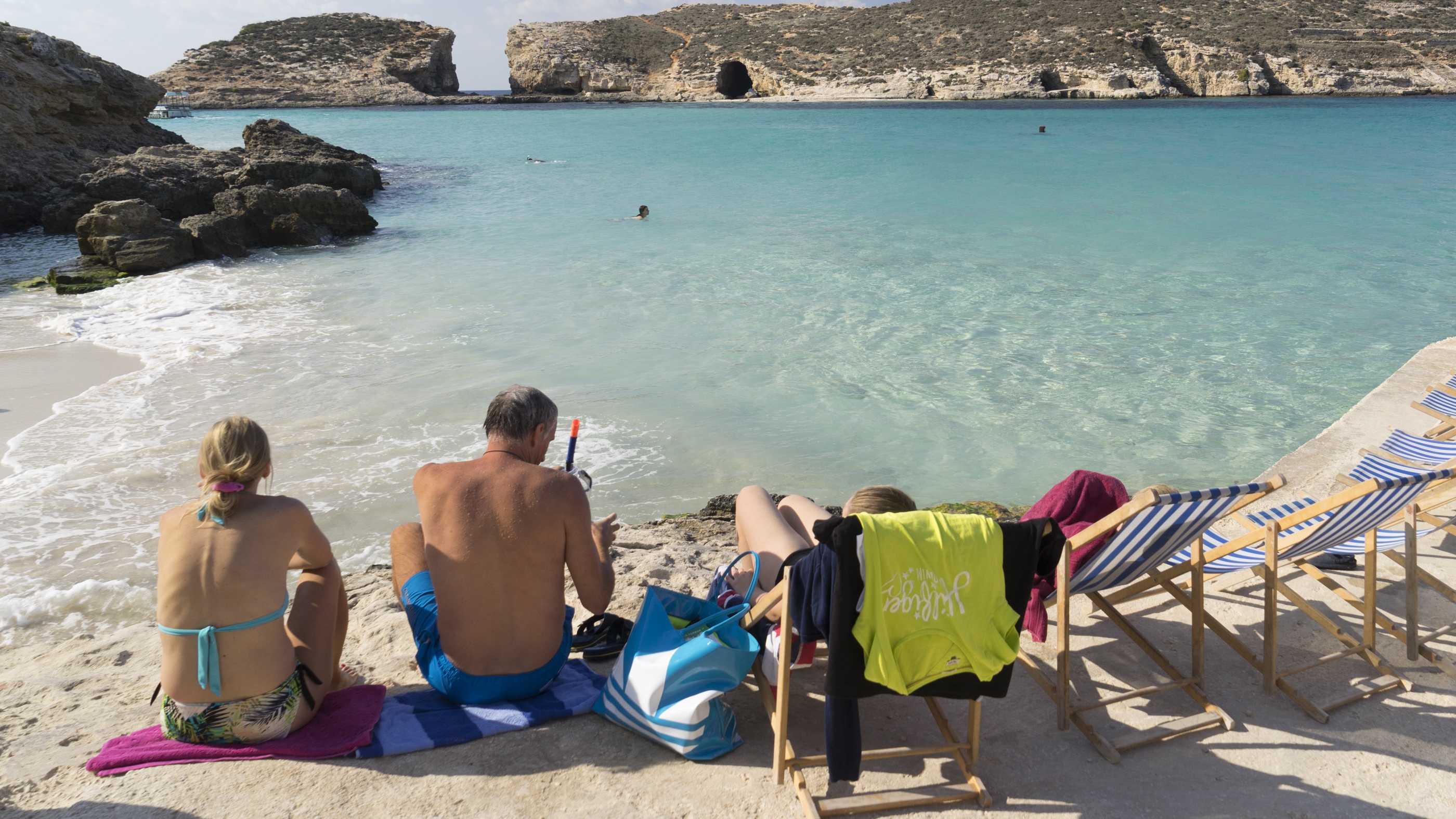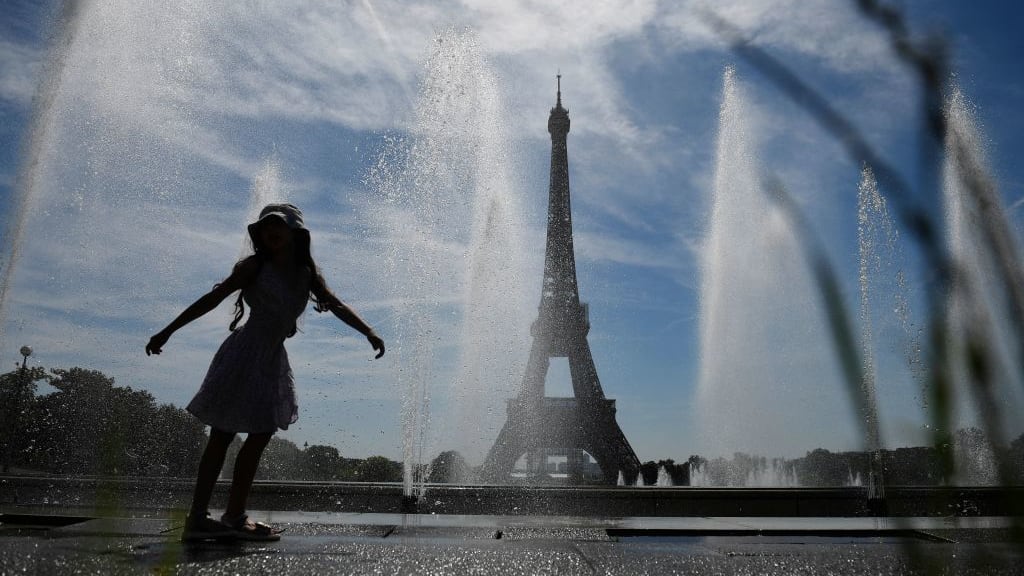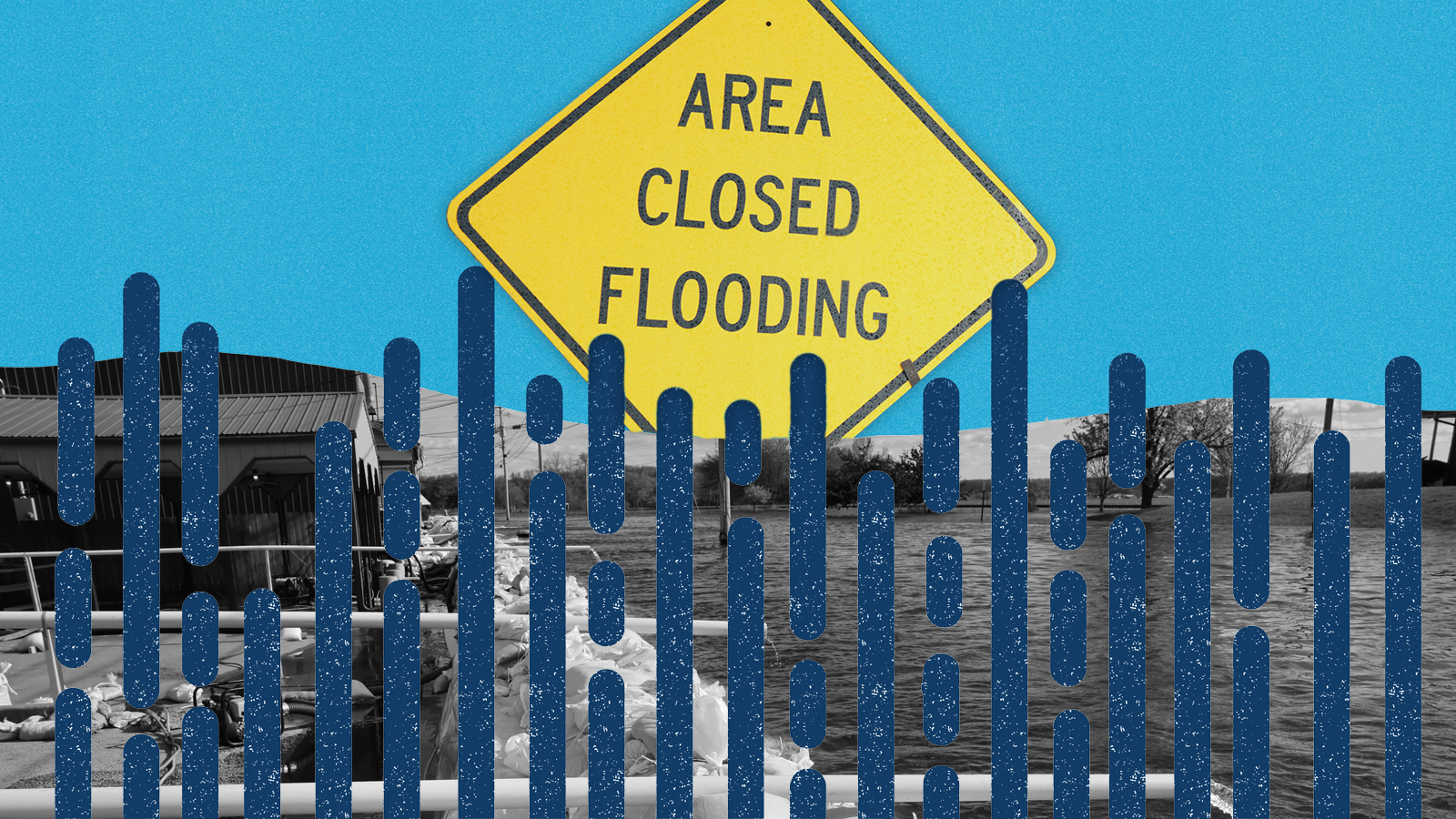‘Summer holidays: if you do go, just stay there forever’
Your digest of analysis and commentary from the British and international press

A free daily email with the biggest news stories of the day – and the best features from TheWeek.com
You are now subscribed
Your newsletter sign-up was successful
1. I dared to go to a green list country – now I’m a prisoner in my own home
Judith Woods in The Telegraph
on venturing abroad
“I feel like a criminal. Or a confused migrant at the mercy of Priti Patel’s very cross, entirely unsympathetic apparatchiks,” writes Judith Woods in The Telegraph. “Yet my only misdemeanour is having had a girls’ weekend abroad. To the Faroe Islands, a green-list destination. Yay!” But the trip “unfortunately required several hours in transit at Copenhagen airport, which is on the amber list. Boo. Or rather, boo hoo.” That means “I am currently in self-isolation”, which entails a ten-day quarantine and daily calls from government tracers. “Random visits have been threatened as well; to make sure I stay at home, comrade.” Another of “my friends is receiving the daily calls, too. The other hasn’t had any at all.” “To be honest, I am incandescent with fury and wondering (yet again) why the hell Boris Johnson allowed our international borders to stay wide open at the very beginning of the pandemic?” Instead of taking those measures, travellers are living with “this officious catch-up, this lavishing of attention and resources on me right now”. “So, summer holiday 2021, should you stay or should you go? My advice is this: if you do go, just stay there. Forever.”
The Week
Escape your echo chamber. Get the facts behind the news, plus analysis from multiple perspectives.

Sign up for The Week's Free Newsletters
From our morning news briefing to a weekly Good News Newsletter, get the best of The Week delivered directly to your inbox.
From our morning news briefing to a weekly Good News Newsletter, get the best of The Week delivered directly to your inbox.
2. It’s time to get tougher with the antivaxers
Oliver Kamm in The Times
on mob mentality
“It is no injustice that one of the yobs filmed manhandling Chris Whitty, England’s chief medical officer, has lost his job as an estate agent,” writes Oliver Kamm in The Times. “Though Whitty has borne it stoically, he has been repeatedly harassed by anti-vaccination campaigners,” he continues, adding that “there is a real danger of under-reacting to this type of intimidation. The antivaxers are not merely an eccentric fringe. They are a threat to public order and public safety.” While “there is a reasonable debate about trade-offs between safety and liberty in the coronavirus crisis”, Whitty’s assailants are “not part of it”. Indeed, “the assault of the antivaxers is not only on sound policy but on the very notion of reliable knowledge. That’s what makes them dangerous.” It is “irrationalism” of the same type that drove rioters to storm the Capitol “on the baseless premise that the presidential election had been rigged”. While “intolerant people”, such an anti-vaxers, “have inalienable rights” they “do not include being shielded from denunciation, shame and derision”, he adds. “We should show some toughness in confronting those who threaten violence, endanger health and poison public debate.”
A free daily email with the biggest news stories of the day – and the best features from TheWeek.com
3. Labour’s victory in Batley and Spen shows the party is learning how to fight back
Paul Mason in the New Statesman
on lessons for the left
“Three words summarise the Batley and Spen by-election: Labour. Fought. Back,” writes Paul Mason in the New Statesman. “Confronted by George Galloway, reborn as an anti-woke campaigner exploiting homophobia, Labour activists faced down the intimidation and the threats his campaign inspired and turned the imagery against him,” he says. “They learned – both in the Muslim community and the tight-knit white working-class villages that form the seat – to go beyond ‘get-out-the-vote’ (GOTV) and engage in deep, persuasive conversations.” Nevertheless, “the great gaps in Labourism remain strategy, policy and narrative. If the strategy is to win back the Red Wall – and the acquiescence of the pro-Brexit Heavy Woollen Independent vote in Batley suggests that may be possible – then with what policies, what language, what story and vision for the future?” What the by-election result suggests is that “voters were more prepared to trust a fitness coach from round the corner on these issues than they were Starmer himself”, he adds.
4. Canada’s heatwave is a vision of our future
Peter Franklin on UnHerd
on human survival
“We don’t usually associate the Great White North with blistering heat, but on Tuesday a new record was set for Canada – 49.6°C in Lytton, British Columbia,” writes Peter Franklin on UnHerd. “Of course, heatwaves happen; and Canada isn’t immune”, but “the country’s temperature record wasn’t just broken, it was smashed – by nearly five degrees centigrade”. “On a geological timescale, what we’re doing to the climate is happening very fast. But what about the human timescale? We’ve still got years – indeed, decades – to adapt, haven’t we?”, he says. “Well, yes, as a species, we have. But as individuals, there’s literally a point at which we can’t cope with extreme heat.” It’s all to do with “wet-bulb temperature” – a measurement of both heat and humidity. “At a wet-bulb temperature of around 35°C, human bodies gain more heat than they lose, no matter how much they sweat. It’s at this point that people start dying.” While wet-bulb temperatures still rarely reach this “danger zone”, global temperatures rising means “whole parts of world will slip into the danger zone”, Franklin adds. “While global warming has all sorts of nasty consequences well before we hit the wet-bulb danger zone, it strikes me that a hard limit on human survival is a great way of concentrating minds.”
5. England and the union: we need to talk
The Guardian editorial board
on the UK’s future
“This country needs a serious conversation about England. Not about the England football team – that’s for another day,” says The Guardian. “The conversation this country – the United Kingdom – needs is about England’s future political and constitutional relationship with the rest of the union.” While “a particular version of that conversation simmers perpetually in Northern Ireland [and] a dynamic one rages in Scotland, a third variation is developing in Wales”. But in “England itself, the conversation lurks between niche and nonexistent”, the paper warns. “That needs to change. Why? Because, without a serious, calm and collective effort, the UK may be stumbling towards dissolution.” Some groups “in all parts of the UK – and beyond – would welcome that”. “Many, also across all parts of the union, would be appalled, or merely dumbfounded by the casual demolition that may soon occur.”
-
 Can the UK take any more rain?
Can the UK take any more rain?Today’s Big Question An Atlantic jet stream is ‘stuck’ over British skies, leading to ‘biblical’ downpours and more than 40 consecutive days of rain in some areas
-
 The UK expands its Hong Kong visa scheme
The UK expands its Hong Kong visa schemeThe Explainer Around 26,000 additional arrivals expected in the UK as government widens eligibility in response to crackdown on rights in former colony
-
 One great cookbook: Joshua McFadden’s ‘Six Seasons of Pasta’
One great cookbook: Joshua McFadden’s ‘Six Seasons of Pasta’the week recommends The pasta you know and love. But ever so much better.
-
 Woman accidentally puts nan in washing machine
Woman accidentally puts nan in washing machineTall Tales And other stories from the stranger side of life
-
 Bangladesh dealing with worst dengue fever outbreak on record
Bangladesh dealing with worst dengue fever outbreak on recordSpeed Read
-
 Glacial outburst flooding in Juneau destroys homes
Glacial outburst flooding in Juneau destroys homesSpeed Read
-
 John Kerry in Beijing: how red China is turning green
John Kerry in Beijing: how red China is turning greenfeature Climate talks set to resume between Washington and Beijing this week
-
 Study: Nearly 62,000 people died in 2022 European heatwave
Study: Nearly 62,000 people died in 2022 European heatwaveSpeed Read
-
 Arizona limits construction in Phoenix area amid groundwater shortage
Arizona limits construction in Phoenix area amid groundwater shortageSpeed Read
-
 How bad are this year's Mississippi River floods?
How bad are this year's Mississippi River floods?Speed Read "Everybody's plan along the river has been put to the test"
-
 What is OPEC and how does it affect oil prices?
What is OPEC and how does it affect oil prices?Speed Read Everything you need to know about the influential organization and its rocky relationship with the United States